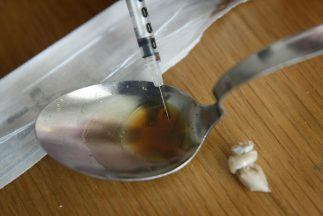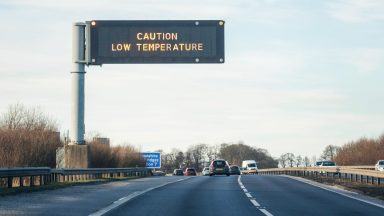The number of children dying before their first birthday is rising among Scotland’s poorest, research has found.
The gap between the poorest and richest Scots has grown, the Health Foundation said.
Analysis found that, as of 2019, there was a 24-year gap in the time spent in good health between people living in the richest and poorest 10% of areas in Scotland.
The report said the gap had been widening since 2016 and found that people living in the poorest two-fifths of households were almost eight times as likely to report poor health as the richest fifth.
Chris Creegan, chairman of the charity’s expert advisory group, said: “This review is the most comprehensive study of health inequalities in Scotland since devolution.
“While the findings are complex, what they clearly illustrate is that inequality in health is stubbornly high in Scotland.”
The report found that, from the year 2000, infant mortality fell overall in Scotland and is lower than many other high-income countries.
But since about 2014, the number of infant deaths per 1,000 births rose for the most deprived fifth, while rates fell among the richest 60%.
By 2016/18, infant mortality rates in the poorest areas were 2.6 times higher those in the richest.
The poorest youngsters are also more likely to be obese at the start of primary school, less likely to have vaccinations, and more likely to have development concerns aged 27-30 months.
But the health of the youngest children was not the only area of concern raised by researchers.
The overall rate of drug deaths increased from 6.2 per 100,000 in 2001 to 25.1 in 2020. Among the poorest Scots, the most deprived areas suffered from rates of 68.2 in 2020 – 18 times higher than the least deprived.
Across the country, drug deaths in 2020 were 3.6 times higher in Scotland than the UK average and 2.6 times higher than in Northern Ireland and the north east of England, which had the next highest rates.
Researchers said suicide, alcohol and drugs were the leading causes for the deaths of men aged 15 to 44.
Being younger, single, white and male is most strongly associated with experiencing severe multiple disadvantages, which are linked to greater risk of poor health, the report found.
And avoidable mortality rates among women living in the most deprived fifth of areas have increased by 8% since 2010, researchers said, despite falling for the rest.
David Finch, assistant director of the Health Foundation urged the Scottish Government, councils, and other organisations to step in.
“Without action, Scotland’s most deprived communities are likely to continue suffering from poor quality of life and die younger,” he said.
“A healthy community derives from a range of factors: stable jobs, good pay, quality housing and education. Poor health is almost inevitable when some or all of these factors are absent.
“Scotland’s wide and sustained health inequalities are being driven by the accumulation of severe multiple disadvantages, a lack of improvement in living standards and public service fragility due to the ongoing impact of austerity.”
Since the 1950s, Scotland has had the lowest life expectancy of any part of UK and, in recent years, its position has got worse relative to other western European countries.
The report said that overall, stalled improvements in health mean that, since 2013, expectations of how long people are expected to live have reduced by 4.4 years, from 90.4 to 86 years.
The Scottish Government has been approached for comment.
Follow STV News on WhatsApp
Scan the QR code on your mobile device for all the latest news from around the country


 Tatyana_tomsickova via iStock
Tatyana_tomsickova via iStock

























